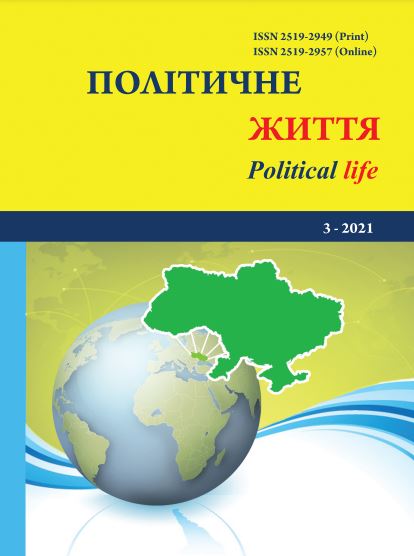The Philosophy of the City of Juley Simon and the PotC Research Group
DOI:
https://doi.org/10.31558/2519-2949.2021.3.14Keywords:
philosophy of the city; organic humanism; ontology; epistemology; phenomenology;Abstract
The article deals with the modern concept of the city’s philosophy, created by the American scientist J. Simon and the international research Philosophy of the City Research Group (PotC). Emphasis is placed on the fact that the problem of building an ideal city and the urban theme is one of the leading in the Western philosophical tradition. It acquires special significance in our age of globalization, urbanization and informatization. The article analyzes the philosophical foundations of the urban concept by J. Simon and his colleagues. In particular, the history of the problem of the city in Western philosophy, the ontology and epistemology of the city of A. Varzi and K. Easwaran, the phenomenology of the city of V. Vihanninjoki and W. Howell are analyzed. Based on the published works, it was found that one of the most important prerequisites for the philosophy of the city of PotC and its ideological leader is the organic humanism of the American thinker L. Mumford, which is to consider the city as a "comfortable place to live." At the same time, researchers from the PotC group point out the contradictions of human urban existence related to anonymity, alienation and loneliness in the city. J. Simon turns to phenomenology as a methodological strategy capable of understanding the "spirit of the city", which creates the sustainability of its existence. In doing so, they are based on phenomenological tools and techniques developed by M. Heidegger and M. Merleau-Ponty. J. Simon also refers to the legacy of H. Arendt, in particular her concept of "human condition" to clarify the problems of migration and "desertification" of cities (particularly in the cities of El Paso and Detroit). Emphasis is placed on the productivity of urban research methods proposed by the PotC research group and points to the possibility of their application in the context of decentralization and local government reforms in Ukraine.
References
About Jules Simon. University of Texas at El Paso. URL: https://works.bepress.com/julesimon/
Easwaran, K. The Concept of Rationality for a City. Topoi. 2021. №2. v. 40, Р. 409–421 https://doi.org/10.1007/s11245-019-09645-6
Howell, Whitney. Anonymity and Diversity: A Phenomenology of Self-Formation in Urban Culture. Topoi. 2021. №2. v. 40. P. 471–480. https://doi.org/10.1007/s11245-018-9605-x
Mumford, Lewis. The City in History: Its Origins, Its Transformations, and its Prospects. N-Y.: Harcourt, Brace and World. 1961. XI+ 657 p..
Mumford, Lewis. The Condition of Man. N.-Y.: Harcourt, Brace and Company, 1944. 467 p.
Simon J. Art and Responsibility: A Phenomenology of the Diverging Paths of Rosenzweig and Heidegger. 2011. N.-Y. Bloomsbury Publishing. 304 p.
Simon J. Introducing Philosophy of the City. Topoi. 2021. №2. v. 40. P. 387-398. https://doi.org/110.1007/s11245-021-09739-0
Simon J. The Art of Interpretation: Rosenweig’s Midrash and Heidegger’s Hermeneutics. Journal of Chinese Philosophy. 2015. №1-2. v. 42. P. 99-124.
Simon J. Urban desertification and a phenomenology of sustainability: the case of El Paso, Texas. Interdisciplinary Environmental Review. 2014. №2-3. v. 15. P. 160-182. https://doi.org/10.1504/IER.2014.063659
Simon J. Welcoming Newcomers and Becoming Native to a Place: Arendt’s Polis and the City Beautiful of Detroit. Open Philosophy. 2020. №1. v. 3. Р. 586-598.
Varzi A. What is a City? Topoi. 2021. №2. v. 40. P. 399–408. https://doi.org/10.1007/s11245-019-09647-4
Vihanninjoki V. Urban Places as Aesthetic Phenomena: Framework for a Place-Based Ontology of Urban Lifeworld. Topoi. 2021. №2. v. 40. P. 461–470. https://doi.org/10.1007/s11245-018-9601-1

